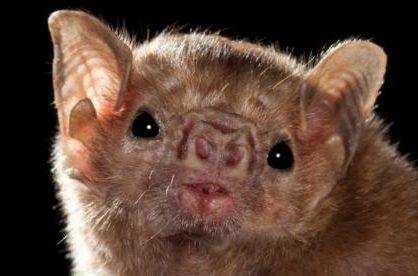Vampire bats have unique abilities when it comes to getting the nutrients they need from their food. And yes, that food predominantly consists of blood. You may never have questioned the ability of an animal to survive on blood, but it is surprisingly difficult to subsist on. Dr. M. Lisandra Zepeda Mendoza, a bioinformatician who crunches numbers related to biological processes, wanted to further explore how bats digest food.
Like humans, bats are mammals, and they share some similarities with us in terms of what they need to survive. They require shelter, often residing in caves or hollow trees. They have a rather complex social structure that revolves around food sharing (yes, blood sharing). And they have specific nutritional and dietary needs, just like humans do.
Their main food source does not seem like it would meet their dietary requirements. Blood is low in both carbohydrates and crucial vitamins, and it often carries diseases. Therefore, the fact that these bats can exist on a diet of mostly blood and still have the energy and nutrition they need is thought-provoking.
To investigate this phenomenon, researchers did genetic testing on vampire bats to compare them with other bat species, and they collected bat poop. That may sound like an unpleasant task, and, according to Dr. Mendoza, it was. The research team had to wait near the entrances of caves where bats had taken up residence. Then, as the bats exited the cave, the researchers used nets to capture these fanged friends and held them in captivity until they defecated. Dr. Mendoza added that sometimes the bats would “get shy,” and the team would have to wait a long time before a sample was produced. Once they had the samples, they could analyze the gut microbiome of the vampire bats to see what microbes—tiny single-celled organisms such as bacteria—were present and what they were doing.
Humans have more microbes in our bodies than actual human cells, and bats are much the same. Just like us, they rely on their inner microbial communities to assist with digestion and immunity, but until this recent study, nobody knew just how unique their microbe helpers are. Genetically, vampire bats are similar to many other bat species that eat mostly fruit or bugs. What sets them apart is their evolved immunity to certain blood-borne viruses that they might pick up while grabbing a meal. This finding makes sense when we consider the presence of disease in the blood that vampire bats are regularly ingesting.
However, genetics alone do not explain the ability of vampire bats to live on a diet of blood. And at first glance, neither did an analysis of the gut microbes. In terms of which bacteria were present and in what quantity, they seemed to be very similar to other bat species. However, upon taking a closer look, the research team found that the compounds produced by the gut microbes in vampire bats were quite different from those in other bat species.
While microbes help with digestion in most of their hosts, the microbes in vampire bats’ digestive systems are even more adept at breaking down and processing the ingested food. In fact, the microbes were found to be producing vitamins that the bats would otherwise lack in their severely limited diet.
To a lesser degree, this vitamin production chain happens in humans, too. There are some vitamins that we need in our body that we cannot break down and use on our own, such as vitamin B12. We need bacterial helpers in our digestive system to process the vitamin when we ingest it. Perhaps a deeper understanding of our vampiric neighbors will lead to a better understanding of the importance of the microbiome, both for ourselves and for vampire bats.







